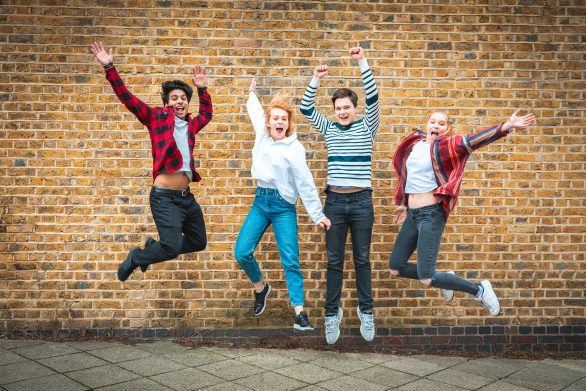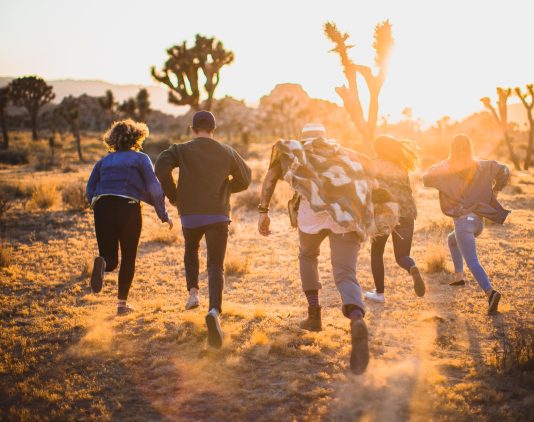
Learn more about the Saintlo Foundation
Why does the Saintlo Foundation need my support?
Your donations enable us to offer free educational workshops in schools and travel grants to youth in vulnerable situations. The Saintlo Foundation aspires to create a world where travel contributes to breaking the cycle of social exclusion. Together, we can multiply the inspiring, positive experiences that shape a unified generation with strong values.
Who supports the foundation’s mission?
In order to confirm our direction, the Saintlo Foundation team ordered Léger to conduct a study in 2022. According to this study, in both Quebec and Ontario, seven out of ten respondents consider our mission to be relevant (75% in Quebec and 70% in Ontario) and consider that it is a lever that enables young people to fulfil their potential and realize their dreams (77% in Quebec and 71% in Ontario). Thus, the Saintlo Foundation’s social mission is valued by most Quebecers and Ontarians.
In addition, the majority of these populations appreciate the equality of opportunities when it comes to having access to travel experiences. In their opinion, whatever their social-economic background, young people deserve to have the chance to travel and enjoy the benefits the experience offers.
Contribute to the cause
Why give to the Saintlo Foundation to help disadvantaged youth or youth in vulnerable situations experience youth travel as personal development?
Many youth never get out of their environments. They therefore lose the chance to truly understand the world in its abundance. Their perspective on their future risks being limited to what little beyond the horizon their environment has shown them. Contributing financially to help vulnerable youth travel gives them the chance they need to truly blossom and see life from a broader perspective—not only for themselves, but for their family and friends too. This personalized educational experience enriches the entire society we live in together.
Your financial contribution will help youth with the following:
Access to educational opportunities
Many young people don’t have the financial means to take part in educational travel. Your financial contribution can help them access precious educational experiences that expand their horizons and elevate their learning.
Personal and professional development
Travel at a young age can have a profound impact on personal growth and development. It exposes youth to new cultures, perspectives and challenges, which in turn fosters independence, adaptability and resilience. These experiences can also strengthen self-confidence, improve communication skills and boost career perspectives.
Overall understanding and empathy
Travel gives young people the opportunity to interact with people from diverse backgrounds, cultures and communities. This direct contact fosters understanding, empathy and respect for different cultures, thus promoting a more inclusive and tolerant society.
Inspiration and motivation
Travel experiences can be transformative, inspire youth to dream big and motivate them to strive for their objectives. By supporting their travel projects, you can give young people the inspiration and motivation necessary to explore the world, follow their passions and have a positive impact on their life and their community.
Create memories for life
Travel at a young age creates memories and long-lasting friendships. Your financial contribution will enable youth to create experiences and relationships that they will cherish all their life..
Why travel
How can a positive travel experience help youth in vulnerable situations?
When young people travel, they get to know others from a diverse variety of backgrounds, develop their self-confidence and discover their talents. This experience encourages them to think for themselves and inspires them to cut their own path and imagine new possibilities in their lives.
Many essential life skills are developed in just one trip:
- Adaptability: getting out of one’s comfort zone to explore new places and discover different cultures.
- Cooperation: helping others and sharing moments with other young people.
- Communication: enriching encounters and friendships with people from all over the world.
- Empathy: having a better understanding of the world and the people in it.
- Organization: learning to find information and to plan out a trip.
- Self-confidence: trying new activities to acquire life skills.
These experiences have the power to change young people’s lives.
Did you know that leisure is a right recognized by the United Nations?
The United Nations’ Universal Declaration of Human Rights (1948) recognizes leisure as one of the fundamental rights, alongside education.
What is youth tourism?
Youth tourism means travel and tourism activities that are meant for young people, generally between 15 and 30 years old. The Saintlo Foundation has decided to start the programs from 10 to 17 years old, targeting the period of adolescence. Youth tourism covers various types of travel experiences that respond to the interests, preferences and budgets of young travellers. It’s often characterized by a sense of exploration, independence and a desire for authentic experiences. It often favours economical options, unique experiences and possibilities for personal development and cultural exchange.
Is travel at an early age beneficial?
Yes, in many ways. According to a study carried out by Léger* among the populations of Quebec and Ontario, the benefits associated with youth travel, its educational value and its positive impact on young people’s lives, particularly in terms of increasing their adaptability and self–confidence, are widely recognized. This finding is even more pronounced for respondents who had the opportunity to travel between the ages of 11 and 25.
Also according to the study, a majority of Quebecers (58%) and Ontarians (41%) believe that troubled youth aged 13 to 16 should be the priority target group for early travel assistance.
*Study commissioned in 2022 by the Saintlo Foundation to validate its orientations and objectives.
What are the different kinds of youth tourism?
Educational tourism
This is travel organized specifically for students, overseen by teachers and educators. Its main objective is to reinforce the students’ learning and development by exposing them to new educational experiences outside the classroom and their immediate environment.
Study-abroad programs:
Many young people choose to study abroad, whether for a semester or an entire school year, to discover different cultures, acquire international education and broaden their horizons. These programs often combine theoretical course work with cultural activities and travel.
Work-study and work travel
Some young people seek to work or apprentice abroad to acquire practical experience while immersed in a new culture. Work-travel programs can give precious international experience and the opportunity for cultural exchange.
Volunteer tourism:
Young people often volunteer in large projects that contribute to communities and causes around the world. These experiences combine travel and volunteer work in areas like conservation, community development and language teaching.
Adventure tourism:
Young travellers are attracted to adventure and adrenaline, in activities like hiking, trekking, climbing, diving, safaris and extreme sports.
Thematic tourism:
Many young people travel to attend music festivals, concerts, sports and other events, both nationally and internationally.
Backpackers and independent travellers:
These independent young travellers explore different destinations with an accent on adventure, cultural immersion and personal development. They may choose economical accommodations and public transport, and engage in activities like hiking, volunteering or taking part in local festivals.
Why encourage young people to stay at a youth hostel?
According to a study conducted by Léger in 2022 to validate the Saintlo Foundation’s orientations, three-quarters of Quebecers (76%) view youth hostels positively. For these people, this type of accommodation enables them to meet new people and forge friendships, experiences that have a positive impact at the interpersonal level. Those who have stayed in a youth hostel emphasize the spirit of camaraderie, mutual aid, sharing and respect.
get involved
Spontaneous, monthly or perpetual donation, together, we can offer youth even more opportunities to help them reach their full potential.


